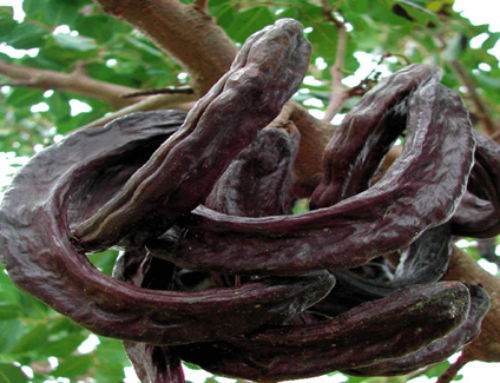Okra – a unique green vegetable (actually a fruit) that owns the name of “ladyfinger,” too.
Okra looks more like a green ridged pepper and is consumed in all regions of the world in multiple ways. Though the information about okra’s origin is a bit unclear and disputed, it is known to have originated in West Africa.

This little green pod is used as the main course in numerous cuisines. Okra’s edible green seed pods can be baked, grilled, fried, and cooked to treat the taste buds. You can say that it’s a Southern treat, but it’s equally loveable for everyone.
Do you want to know why okra is a superfood? Why does it receive overwhelming admiration globally, and how it aids a healthy life? Well, the hype is true – the okra isn’t only cooked as a meal, but it is celebrated as a meal.
The blog contains all the information you might need to know about okra’s history, origin, health benefits, and cooking tips. Let’s get started!
History of Okra in Ghana
As stated, okra’s history and origin are a little blurred, but it is thought to have originated somewhere in or around Ethiopia.
The history clues that ancient Egyptians harvested it as earlier as the 12th century B.C. Then, it spread out in the Middle East, North Africa and ultimately sprouted in West Africa and Ghana.
People harvest okra to use its gum-filled seed pods for cooking as meals. Also, okra’s seeds were roasted and grounded to be used as a Coffee substitute.

Moreover, the people of West Africa and Ghana name it Okro, and Okro Stew is a traditional Ghanian Recipe.
You might wonder, where does okra come from in Ghana? Maybe a trade between Egyptians or Ethiopians and Africans introduced Okra in Ghana, and it is a widely used vegetable to date.
The history and origin of okra are apparent, but before moving on, it’s crucial to find Is Okra Fruits or Vegetables?
The okra is widely used as a veggie intended to be used in meals with seasonings and spices, but biologically, it is classified as a fruit, just like eggplant and tomatoes.
It’s a well-known fact that okra is a healthy meal, but do you know its prime health benefits? Before reading the benefits, having an insight on okra’s nutritional value may help you realize what wonders it can do for you.
Okra’s Nutrition Facts
You may have known okra for its fiber content, but it’s way more than that. The following Okra Nutrition Facts are provided by the USDA and are stated for a 1/2 cup or 80g boiled and sliced okra:
- Calories: 18
- Fat: 0.2g
- Sodium: 5mg
- Carbohydrates: 3.6g
- Fiber: 2g
- Sugars: 1.9g
- Protein: 1.5g
Other than these, okra also contains Magnesium as 14% of the DV (Daily Value), Folate as 15% of the DV, and Vitamin A as 14% of the DV.
What are the Benefits of Eating Okra?
This royal green veggie pod has a complex beneficial structure of folic acid, protein, vitamins (B, C, A, K), fiber, antioxidants, potassium, and few vital phytonutrients.
The nutritional value is enough to plot an idea that the okra will aid weight loss as it contains 0 fats and will promote eye, heart, and brain health as it’s rich in antioxidants and vitamins.

The detailed health benefits of adding okra to your meals or salad bowls are:
● Promotes weight loss
Okra is rich in fibers known to improve digestion and keeps you satiated or full for a long time. Moreover, it minimizes food cravings and ultimately controls weight.
Fiber’s weight loss efficiency gets a kick from other essential nutrients that work by boosting the body’s metabolism while strengthening the core muscles at the same time.
Okra is an all-rounder indeed!
● Good for diabetes
Okra’s servings are rich in antioxidants and plenty of health-supportive vitamins that make it a powerful booster for plenty of physical illnesses like diabetes and cardiovascular diseases.
The people who struggle to maintain their elevated blood glucose levels must add okra to their everyday meals.
Being rich in fiber, okra significantly improves insulin sensitivity and helps control and maintain blood sugar levels.
Along with the mentioned nutrients, ladyfinger also contains Myricetin, which is scientifically known to promote sugar absorption by body muscles and lower elevated sugar levels.
● Lowers the risk of CV diseases
Fat is the ultimate enemy of people who struggle with high blood pressure and other Cardiovascular or CV Diseases. Okra’s fiber content promotes lowering harmful blood cholesterol levels and promoting good blood cholesterol levels.
Furthermore, fibers also stimulate bile juice’s production and transfer in the intestines to maintain cholesterol levels.
Not to forget, okra is a rich source of Magnesium that helps regulate blood pressure levels. It wouldn’t be wrong to say that okra works synergistically for people struggling with chronic ailments.
● Features anti-cancer properties
Okra contains a protein named Lectin that is known to offer support while fighting breast cancer. The researchers also claim that it might suppress cancer cells’ growth to help prevent cancer.
Along with Lectin, it also contains a good amount of folate known to help fight and prevent different types of cancers.
● Boosts digestion
The goodness of fibers again! Fibers aid and support proper food digestion and improve bowel movements to keep the gut healthy and efficiently working.
Fibers aren’t restricted to improve digestion only. They also help treat plenty of stomach illnesses like acidity, ulcers, IBS, constipation, and severe indigestion.
● Helps achieve a healthy skin
Is okra good for your skin? Indeed, it is.
Considering the nutrients present in okra like folate, Vitamin A, Vitamin C, Protein, and Calcium, it wouldn’t be an exaggeration to expect it will promote healthy skin.
People also apply okra directly to the skin as its gummy texture improves its youthfulness and plumpness. Moreover, it provides moisture deep into the skin cells and assures that the skin stays supple, soft, and hydrated.
Also, okra is rich in antioxidants that can help reduce oxidative stress and eliminate free radicals to boost energy. Antioxidants can also help reverse skin damage and can potentially slow down aging.
One veggie and countless health and beauty benefits! Though plenty of okra’s services have been explained, you might wonder how to eat okra and how much quantity is risk-free. Read below to find more.
You might also like: Palm nut: its history, usage, and benefits
What is the Best Way to Consume Okra?
Okra is a unique vegetable. You cannot simply wash and cook it. You need to be careful with its gummy mucilage throughout the preparation and cooking.

How should okra be cooked?
Okra cooking techniques vary from place to place; Some people soak it in vinegar for about 30-50 minutes before cooking to reduce the sliminess. Whereas others deep fry it for the same purpose.
Similarly, some other people prefer keeping and cooking Okra in larger pieces as the more cut down will cause more mucilage.

One thing to always keep in mind is that never wash okra right before cooking; you can pat dry it thoroughly.
What does okra go well with meat?
Okra is a veggie that goes exceptionally well with all kinds of meats. You can also use it with mince, onions, beef, lamb, rice, tomatoes, peppers, dried apricots, coriander, eggplant, curry powder, lemon, oregano, salt, vinegar, and garlic.
The choices and variations are endless!
Can you add okra to the soup?
You might wonder what the possible ways are to cook and savor okra, and luckily, there are plenty of ways to eat okra. You can cook it as gravy, stir fry with seasoning, stuff it with flavors, cook it with meat and add it to the soups.
Okra has been widely used as a main meal ingredient, but it is also used as a secondary ingredient intended to be added for flavoring and thickening purposes.
In Ghanaian recipes, you can add diced and nicely cut okra to gumbo, rice pilaf, or Brunswick stew about 10 minutes before the final cook, and you’ll see it’ll thicken just like the cornstarch.
If you want to learn how to use vegetables to make a fresh soup at home, click here.
What happens if you eat okra every day?
Excess of everything is bad, and so is okras. Though there are plenty of health benefits of okra, overeating can impose many adverse effects, too.
The topmost side effect of overeating okra is, it can cause gastrointestinal disturbances. That’s because okra is rich in carbohydrates, and a type of carbs named fructose can cause gas, cramping, diarrhea, and bloating.
The severeness of the symptoms doubles in people already struggling with bowel problems.
That doesn’t mean okra will disturb the stomach every time consumed; it doesn’t affect badly when appropriately cooked.
Our Takeaway
Okra is a unique vegetable that originated somewhere in Ethiopia and later was transported to Africa and the Middle East.
Since then, South Africa and Ghana are proudly harvesting this crop to provide plenty of health benefits and nutrition. The ladyfinger is rich in fibers, vitamins, and antioxidants and proves a healthy addition to the meals.
Meta Description:
Is okra your favorite vegetable, and you now want to know more about it? Here’s okra’s history, nutrition, health benefits, and consuming tips explained.
References:
https://cooking.nytimes.com/recipes/1021456-lowcountry-okra-soup
https://www.popxo.com/2019/06/health-and-beauty-benefits-of-okra/
https://drvidyahattangadi.com/why-is-okra-the-powerhouse-of-health/





